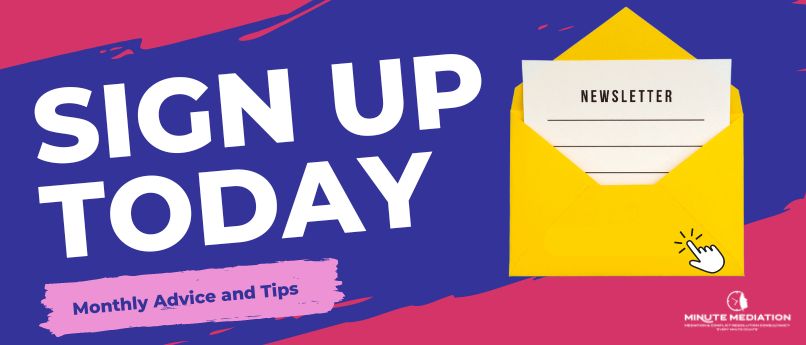The Hidden Harm of Microaggressions: How Narcissists Use Subtle Abuse and False Claims

Introduction
In a society that celebrates inclusion and progress, it’s easy to overlook the quieter forces that continue to breed division and pain. Among these are microaggressions those subtle, offhand comments and behaviours that seem minor in the moment but leave lasting scars. Pair this with the cunning manipulations of narcissists and the rising concern of false allegations, and you’ve got a cocktail of emotional chaos that’s both dangerous and deeply misunderstood.
The real danger? These actions rarely scream abuse. Instead, they whisper it eroding confidence, silencing voices, and fracturing communities from the inside out. Whether it’s a poorly worded compliment that reveals a stereotype, or a calculated accusation designed to destroy, the harm caused by these behaviours is real, powerful, and pervasive.
This article uncovers the mechanics behind these subtle attacks how they manifest, the pain they cause, and most importantly, what we can do about them.
Understanding Microaggressions
Definition and Examples
Microaggressions are like paper cuts to the soul tiny, often unintentional, but painful nonetheless. They are everyday slights, indignities, or insults that marginalized groups face routinely. The problem is, most people don’t even realize they’re committing one.
Here are a few common examples:
- Verbal: “You’re so articulate!” said with surprise to a Black professional. It may sound like praise, but it implies that eloquence is unexpected.
- Behavioural: Locking the car door when a Black teenager walks by. No words spoken, yet the message is loud and clear.
- Environmental: A corporate boardroom filled with only white men. No policies excluding others, but the lack of representation speaks volumes.
What makes microaggressions so harmful is their ambiguity. They’re not overt racism or sexism, so when called out, people often defend themselves by saying, “I didn’t mean it like that.” But intent doesn’t erase impact. And for those on the receiving end, these moments add up day after day, year after year.
Impact on Mental Health
The emotional toll of microaggressions is not “all in your head.” It’s scientifically backed and deeply personal.
- Chronic Stress: Constantly bracing yourself for the next subtle insult keeps the body in a heightened state of alert. It’s like always waiting for a punch that might or might not come exhausting, overwhelming, and bad for your health.
- Anxiety and Depression: When your identity is regularly questioned, mocked, or minimized, it chips away at your self-worth. Victims often internalize these slights, leading to shame, doubt, and emotional withdrawal.
- Impaired Performance: At work or school, microaggressions are distractions. They create an unwelcoming environment where marginalized individuals expend energy managing emotions instead of excelling.
It’s not about being too sensitive. It’s about being repeatedly reminded that you’re “other,” and that you don’t belong.
Narcissistic Behaviours and Manipulation
Characteristics of Narcissists
Narcissists walk among us not always obvious, but often deeply destructive. These individuals may not scream at you or hit you. Instead, they chip away at your confidence, always keeping you unsure of where you stand.
Core traits of narcissists include:
- Grandiosity: A constant need to feel superior to others.
- Lack of Empathy: They’re unable or unwilling to understand how others feel.
- Manipulation: They twist words, guilt-trip you, and play mind games to get what they want.
What’s terrifying is how charming they can be. At first, they may flatter you, seem overly interested in your life, and even act protective. But as time goes on, the mask slips, and the subtle abuse begins.
Microaggressions as Tools of Control
Narcissists are masters of microaggressions. Why? Because these subtle insults allow them to wound without accountability. You feel the sting, but when you react, they deny or mock your response.
Here’s how it looks:
- Backhanded compliments: “I didn’t expect you to be this smart.” Translation: “You don’t fit my image of intelligence.”
- Gaslighting: “You’re too sensitive. That’s not what I meant.” Suddenly, you’re doubting your own experience.
- Divisive behaviour: Narcissists sow discord between people, creating isolation and dependency.
Over time, these tactics keep the victim in a fog unsure, unsteady, and emotionally reliant on the abuser.
The Menace of False Allegations
Understanding False Allegations
In a world striving to protect real victims, false allegations are a painful paradox. They’re rare, yes but when they happen, they destroy lives.
False allegations can stem from:
- Misunderstandings: Misinterpreting behaviour or words through a biased lens.
- Manipulation: Intentionally framing someone to gain control or revenge.
- Narcissistic Retaliation: Weaponizing accusations to silence dissent or punish a perceived betrayal.
The consequences are devastating:
- Reputation Damage: A single accusation can tarnish a lifetime’s work.
- Emotional Fallout: Innocent people often spiral into depression, fear, and even suicidal thoughts.
- Financial Strain: Legal battles are costly, and the public rarely waits for the verdict.
And the worst part? Even when the truth emerges, the stigma lingers.
Intersection with Narcissistic Behaviour
Narcissists don’t hesitate to go nuclear. If they feel threatened, they might flip the script and play the victim.
Here’s how it plays out:
- Deflection: When caught, they accuse others to shift focus away from their own behaviour.
- Revenge: If you break free or call them out, they may retaliate with false claims.
- Control: A well-timed accusation can silence criticism, rally sympathy, and re-establish dominance.
They manipulate narratives like a maestro conducts a symphony only the song is your downfall.
Strategies for Mitigation and Support
For Individuals
You’re not powerless. If you’re facing microaggressions, narcissistic abuse, or false claims, here’s how to regain control:
- Educate Yourself: Learn to spot red flags and understand the psychology behind them.
- Build a Support Network: Friends, mentors, and therapists can provide clarity and strength.
- Keep Records: Dates, conversations, screenshots documentation is your best defence.
You deserve to feel safe and respected. Don’t let silence protect your abuser.
For Organizations
Workplaces, schools, and institutions must be proactive not reactive. Here’s how:
- Training: Go beyond surface-level DEI. Teach emotional intelligence, bias recognition, and respectful communication.
- Clear Policies: Establish confidential reporting systems and ensure timely investigations.
- Support Services: Offer counselling and wellness programs that prioritize mental health.
An inclusive environment isn’t just ethical it’s essential for growth and innovation.
Conclusion
The power of a word, a glance, or a joke shouldn’t be underestimated. Microaggressions, narcissistic manipulation, and false allegations aren’t just issues of etiquette they’re matters of emotional survival. Left unchecked, they fracture lives, destroy trust, and silence voices that need to be heard.
But we can change that. By educating ourselves, setting boundaries, and standing in solidarity, we can dismantle the systems that let subtle abuse thrive. It’s time to stop dismissing pain as “just in your head” and start validating lived experiences.
Because healing begins when truth is acknowledged and courageously spoken.
FAQs
1. What are microaggressions?
Microaggressions are subtle, often unintentional actions or comments that perpetuate stereotypes and marginalization.
2. How do narcissists use microaggressions?
They deploy them to undermine confidence, create confusion, and maintain control over others while appearing innocent.
3. What can I do if I’m falsely accused?
Stay calm, document everything, seek legal advice, and lean on your support network for emotional strength.
4. How can institutions address microaggressions effectively?
Through robust training, clear anti-discrimination policies, and accessible support systems for victims.
5. Why should we care about microaggressions?
Because they reveal deeper societal biases and contribute to long-term emotional harm even if unintentional.

